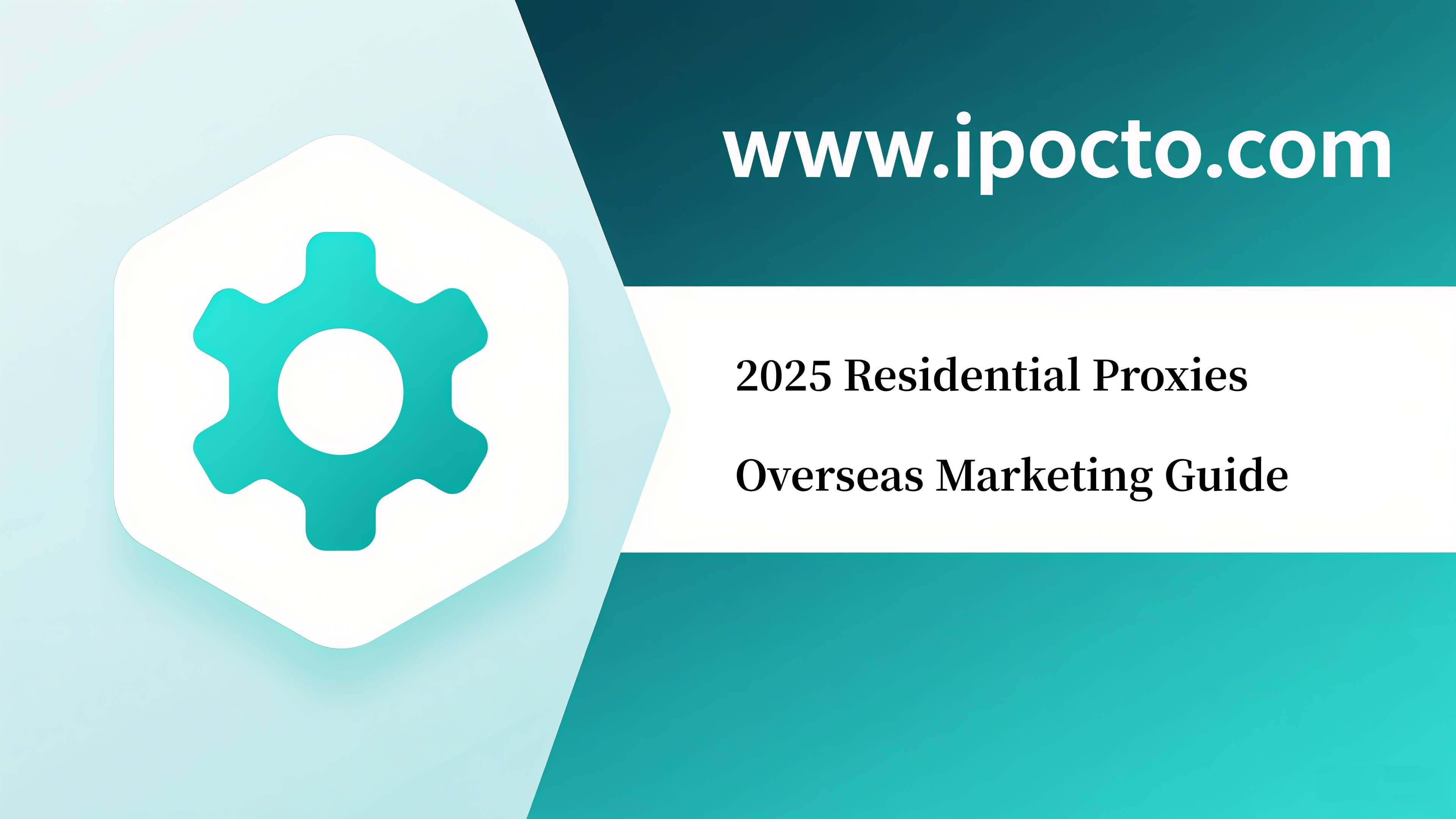1. What Is a Residential Proxy IP? Why Is It a Powerful Tool for Overseas Marketing?
1.1 Core Definition of Residential Proxy IP
A residential proxy IP refers to an IP address from a real household broadband network (as opposed to data center proxies), assigned to regular home users by ISPs (Internet Service Providers). Through technical integration, these IPs are pooled into proxy services, allowing users to access the internet as if they were “real residents.”
1.2 Key Differences: Residential Proxy vs. Data Center Proxy

1.3 Why Overseas Marketing Must Use Residential Proxies
- Bypass Geo-Restrictions: Simulate real users from target countries to unlock geo-blocked content on platforms like TikTok/Google.
- Prevent Account Linking: Avoid multi-account logins from the same IP triggering risk control. (Case: A cross-border e-commerce brand reduced account bans by 92%)
- Boost Ad ROI: Use local IPs to optimize Facebook ad targeting, increasing CTR by 30–50%.
- Compliant Data Collection: Bypass anti-scraping mechanisms on Amazon/Shopify to safely obtain competitor data.
2. Four Practical Applications of Residential Proxies for Overseas Marketing in 2025
2.1 Social Media Matrix Operations (Anti-Ban + Growth)
Applicable Platforms: TikTok, Facebook, Instagram, Pinterest
Implementation Plan:
- Assign each account a dedicated residential IP (recommend IPOcto’s “Country-Level” targeting).
- Use fingerprint browsers like Multilogin to fully isolate account environments.
Case Study: An influencer agency used this method to create over 200 TikTok accounts in 3 months.
2.2 Precision Operations for Cross-Border E-Commerce
Key Applications for Amazon/eBay/Shopify:
- Price Monitoring: Use Oxylabs residential proxies to scrape real-time competitor pricing.
- Review Management: Post reviews from different IPs to avoid deletion.
- Store Anti-Linking: Bind each store to a dedicated static residential IP (IPOcto offers long-term IP leasing).
2.3 Global Ad Campaign Optimization
Advanced Meta/Google Ads Strategies:
- Audience Testing: Create ad groups using US/Germany local IPs for more accurate audience targeting.
- Policy Evasion: Upload sensitive creatives (e.g., cryptocurrency ads) via target country IPs.
Data Point: A DTC brand using German residential IPs reduced CPC by 42%.
2.4 Localized Content Marketing
SEO & Content Creation:
- Use target country IPs to search keywords and get authentic local SERPs.
- Access YouTube/forums via residential IPs to collect trending local topics.
Tool Recommendation: IPOcto + ScraperAPI for automated long-tail keyword collection.
3. Three Golden Rules for Choosing Residential Proxies in 2025
3.1 Choose Proxy Type Based on Business Needs

3.2 Key Evaluation Metrics
- IP Cleanliness: Require providers to offer IP history records (avoid recycled IPs).
- Success Rate: At least >98% (IPOcto reaches 99.2%).
- Targeting Precision: Support for city-level and ISP-level targeting.
3.3 Cost Optimization Strategies
- Dynamic Proxies: Opt for traffic-based billing.
- Static Proxies: Long-term leasing is more cost-effective.
- Hybrid Setup: Use static IPs for main accounts + dynamic IPs for testing accounts.
4. Action Guide: 3 Steps to Launch Residential Proxy Marketing
- Clarify Needs: Identify your primary platform (e.g., TikTok/Amazon) and budget.
- Select a Provider:
- Small-scale testing: IPOcto
- Technical Deployment:
- Dynamic Proxies: Integrate via Python + Requests library
- Static Proxies: Bind fixed IPs via fingerprint browsers
>> Try Now: IPOcto Residential Proxy Test
2025 Trend Insight
With the advancement of AI-driven risk control, residential proxies are evolving from an “optional tool” into a marketing necessity. Master the strategies in this guide, and you’ll be ahead of 90% of your competitors!



